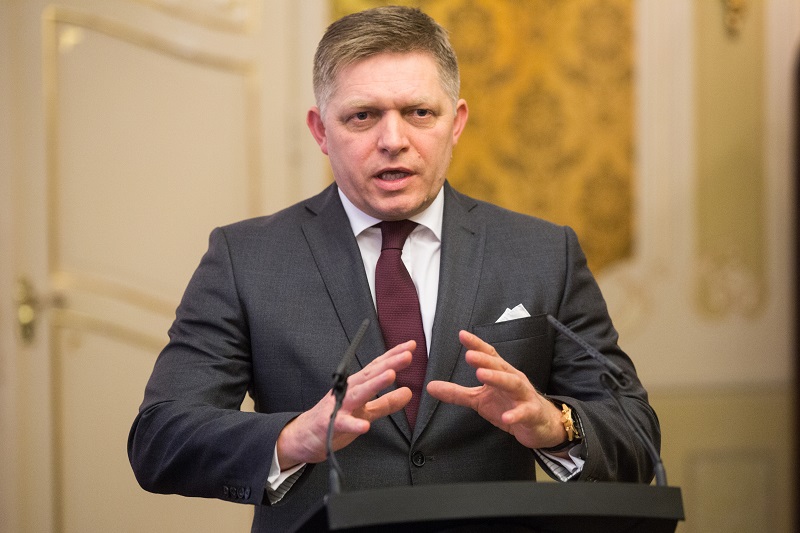The Slovak public broadcaster, Radio and Television of Slovakia (RTVS), has seen more than 15 directors since independent Slovakia emerged in 1993. Directors at the broadcaster have changed more frequently than governments. Whenever power has changed, politicians have been likely to sack the television director and install their loyal pick.
The directorial cast over the years has featured a former star news anchor from communist times, a media lap-dog of autocratic prime minister Vladimír Mečiar and the author of a book of theory on Lenin and journalism. Their respective management styles included banning critical reports, inflating debt and maintaining a telephone hotline to the governmental office.
At the same time, a number of respected critical journalists have left the broadcaster over the years and the decisions of progressive managers have been easily overwritten by the political protégés.
The current RTVS director general, Václav Mika, has not been a short-lived manager, having nearly served a full, five-year term. Under his management, RTVS’ audience share rocketed in 2016 for the first time in many years. Also, participants in a September 2016 survey listed RTVS’ news reporting as the most objective on the market.
But despite the television’s growing popularity and trust in its news broadcast, Mika has become a thorn in the flesh of those in power.
Reprimanding the public broadcaster is now a regular item on Slovak Prime Minister Robert Fico’s media schedule and Parliament Speaker Andrej Danko openly fantasises about turning RTVS into a state broadcaster. Yet, they do not seem to understand that running a public broadcaster carries a different responsibility than that of picking the music at a college radio station.
As a result, political pressure has increased as parliament’s June election of the new RTVS director general nears. Danko’s Slovak National Party (SNS), a member of the Fico-led governing coalition, started crusading against Mika shortly after coming to power in 2016. It appears that Danko would like to see the current head of the state-run newswire TASR, Jaroslav Rezník, behind the wheel at RTVS.
Rezník recently signed a contract with the newswire Sputnik, a Russian-fed propaganda vehicle, and cancelled it only after coming under immense media pressure. The RTVS top job could well be a reward; observers accuse TASR of having over-covered the SNS in 2016, leading the party, which at that time was not represented in parliament, to perform surprisingly well at the polls.
Fico has been quite outspoken about his disappointment with the RTVS under Mika. For example, Fico lashed out at a respected journalist for asking him tough questions about a scandal involving the suspected mishandling of public funds. Fico “reminded” journalists that they were not in a pub and that a journalist, when speaking with a prime minister, was not “at the same level”.
Unfortunately, Fico, Danko and a number of other Slovak politicians seem to have inherited their understanding of journalism from the communist regime: they believe that the job of a reporter is to loyally polish the image of the country, and by country, they mean those who govern it.
They think that public-service must necessarily mean pro-Slovak and that it is their privilege to define what is beneficial for Slovakia. Thus, they keep calling critical journalists anti-Slovak, suggesting that by reporting on governmental corruption, they work against the national interest.
Fico has a history of calling journalists anti-Slovak prostitutes, idiots, slimy snakes or hyenas. He is driven by the instinct that drives several populist politicians: they think that by attacking critical media, they can weaken the credibility of reports that often cut close to the bone.
But he and others like him also regularly suggest that critical media outlets are part of the problem; that they are part of a conspiracy set up to harm the country. Ironically, in times where we witness the spread of Russian propaganda sites, conspiracy and hoax producers, it is attacks like Fico’s against trustworthy critical media that may do more lasting harm to society, eventually weakening democracy.
Fico and Danko are not interested in an independent public broadcaster. They are seeking inspiration in Viktor Orbán’s media desert rather than seek a model, such as the BBC or other public broadcasters, that places the public broadcaster out of governments’ reach.
Beata Balogová is the editor-in-chief of SME daily and a member of the Executive Board of International Press Institute (IPI). Any opinions expressed in this article are those of the author and may not necessarily reflect the view of IPI.
